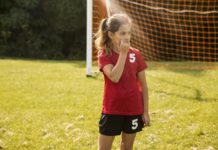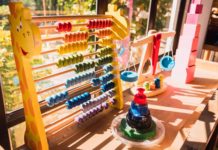
It has been a long and strange nearly two years of learning for kids and teens during the pandemic. I've stared at a screen more than I thought I ever would. Virtual classes, study halls, office hours, club meetings, social events, and more have impacted teens in astronomical ways. Devices that were primarily used for leisure time are now coexisting with schoolwork time. As most schools in the U.S. plan on in-person learning for the 2021 school year, it's important to know the impact of virtual learning from a teen's perspective. The experience had as many perks and it did downsides, and we learned a lot about what works in education (and what really, really doesn't). With more than a year of virtual learning under our belt, teens have discovered the silver linings. Here's what I think should be integrated into the classroom this fall.
What We Learned From Remote Education
1. Recorded Classes Help Kids Retain Information
There are students who thrived within the online platform just as much as they would do in person. Providing an option for lectures or assignments to be hosted online accommodates everyone. Students loved the flexibility that virtual learning allowed. With recorded classes, students could retain information better by hearing the information twice! Having the ability to pause a lecture and take notes allowed students to fully digest the information. Students could also truly work at their own pace, which was helpful for many learners.
2. Students Need Time to Chat
Virtual learning provided no downtime. Classes were often back-to-back and I was barely logged out of one zoom before I had to log into another. I missed those few minutes between classes to catch up with friends or stick around and ask a teacher a question. Teens need breaks and time between classes to socialize and to recalibrate for the next course. The typical break time between the bells is not long enough to make up for a year of solitude—schools should consider adding a flex period to every student's schedule.
3. Group Assignments Are Essential
Teens have not had in-person interactions with their peers for over a year. Providing the option for group assignments more often is a great opportunity for students to work together again and to practice their communication skills.
4. Keep Communication Open Between Teachers and Students
Overall during remote learning communication with teachers was made easier than ever before. Expanding options of communication to include emails, video chats, and a text system would be extremely helpful moving forward. Of course, boundaries could and should still be put in place, but having options for communication rather than just in-person can better help both students and parents.
5. Stop Rewarding Perfect Attendance
Learning on Zoom deprioritized attendance, which is something that should continue. Mental health days and travel should be celebrated rather than punished and teens have proven that they can get more done in less classroom time. Attendance should not affect our grades, because it does not affect our performance.
6. Introduce Independent Learning Time
Some schools offered asynchronous working days for students during remote learning. They had no formal classes but were offered time to get schoolwork done. Once back in the school buildings, administrators should continue to allow teens time to catch up on schoolwork during school hours. Several students participate in after-school programs and get home too late to complete assignments. Others don't exactly have home lives that are conducive to getting homework done. Independent learning time could really help students and not just those who have time in their schedule for a study hall.
My Message to Parents and Teachers
I'm hoping that this new school year will bring with it new flexibility so students can ease back into the classroom. We appreciate our teachers and understand that this past year was a difficult one for everyone involved in our education. We thank them for being our beacon of light during the pandemic. To our parents: Be patient with us. School is hard, it was harder during the pandemic, and it will be hard for us to transition back into the classroom. With your patience, tolerance, and support, we will be resilient.
Dasia Bandy is a military youth that recently earned the 2021 US Navy Military Child of the Year Award. She is studying international affairs and journalism at George Washington University. Bandy is passionate about educating youth about holistic health and creating an environment for leaders to emerge through activism. She's determined to make a difference.
Read more Teen Talk columns here.





